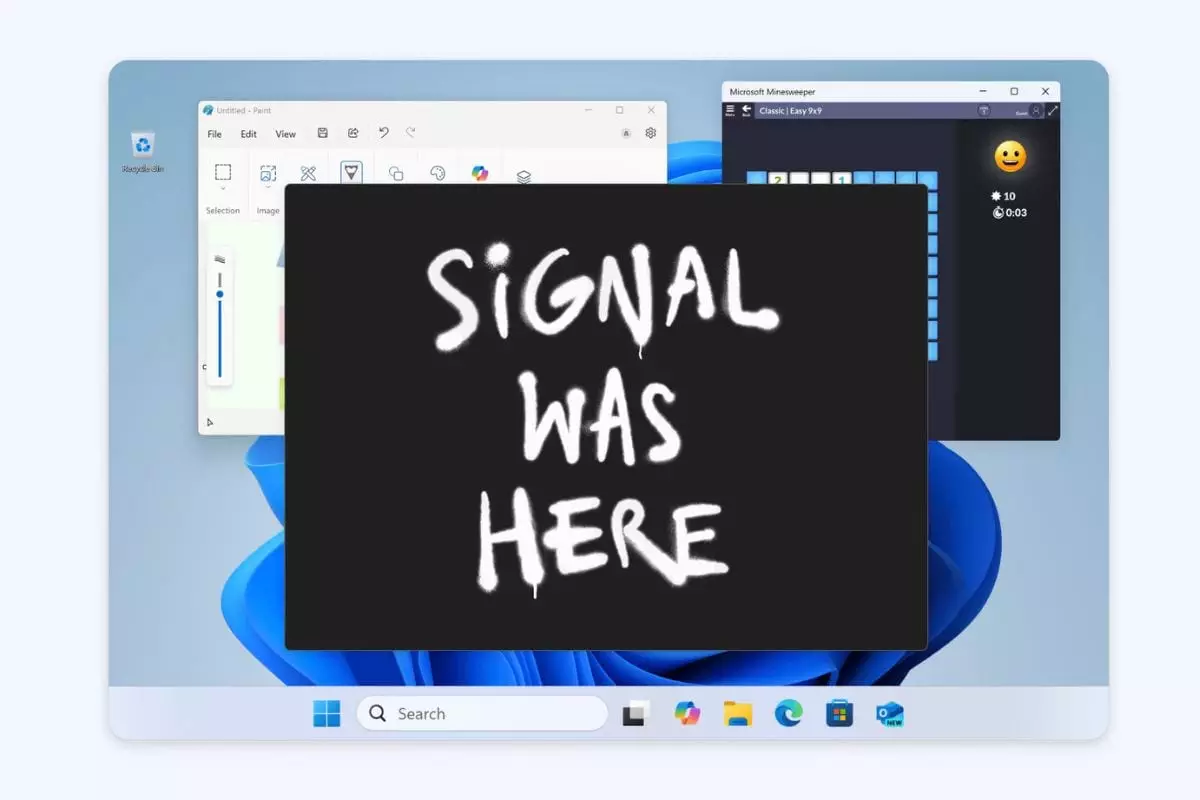As artificial intelligence continues to advance, privacy concerns have emerged as a significant issue, especially among technology users. Microsoft’s Recall feature, which captures screenshots for future reference, has raised eyebrows not only for its potential misuse but also for the implications it carries for user privacy. Signal, a platform built on the principles of security and confidentiality, finds itself facing this modern dilemma head-on. With the recent rollout of its new feature, Screen Security, Signal is making a bold statement in favor of protecting personal data against intrusive technology while simultaneously addressing the challenges posed by Microsoft’s developments.
Screen Security: A Shield Against Intrusion
In a proactive attempt to safeguard its users, Signal has introduced Screen Security, an innovative feature designed to thwart unauthorized screenshots of conversations. This move marks a significant departure from conventional security measures, taking a stance against a system that could easily compromise personal information. The feature will default to being enabled for all Windows 11 users, signifying Signal’s commitment to pushing back against potential vulnerabilities linked to Microsoft’s AI capabilities. By implementing a Digital Rights Management (DRM) flag that secures the application window, Signal is taking a necessary stand in times when privacy seems increasingly vulnerable.
The Backlash against Recall
The inception of the Recall feature, while fueled by technological ambition, has not been without controversy. Originally announced in May 2024, Recall promised to enhance user experience by retaining on-device search history through continuous screenshot capture. However, privacy advocates quickly decried this capability, perceiving it as a blatant overreach into personal spaces. Microsoft attempted to address these criticisms by reworking the feature into an opt-in model; nonetheless, the lack of privacy control tools for app developers, such as Signal, raised questions about the ethical ramifications of such technological advancements.
An Unfair Battle: Developers Struggling for Control
Signal has emphasized its frustration regarding the limitations imposed by Microsoft on app developers. By not providing adequate tools to reject access for AI systems like Recall, the tech giant has effectively left applications such as Signal vulnerable. This unbalanced playing field highlights a critical tension in the tech industry: while powerful corporations push forward with innovations aimed at user engagement through AI, they often neglect the foundational principle of user privacy. This not only undermines trust among users but also forces smaller platforms to adopt desperate measures.
Accessibility Challenges and User Empowerment
While Signal’s Screen Security provides an essential layer of protection, it is not without its drawbacks. The company acknowledges that implementing this feature may lead to accessibility challenges, particularly for those utilizing screen readers or magnification tools. This highlights a crucial aspect of the ongoing conversation about privacy: the balance between safeguarding personal information and ensuring that technology remains accessible to all users. In allowing users to disable the feature, Signal empowers individuals to determine their own balance between privacy and accessibility, fostering a sense of control.
A Call for Responsible AI Development
Signal’s final message resonates powerfully within the broader context of responsible technological advancement. The company’s hope that AI developers will consider the ethical implications of their creations underlines a critical necessity for scrutiny over emerging tech. By engaging in this dialogue, Signal not only champions user privacy but also advocates for a future where accessibility and security coexist harmoniously.
As we embrace the innovations AI brings, it’s vital that companies prioritize user agency and transparency. In the battle for privacy in the age of AI, Signal’s approach serves as a reminder that safeguarding personal data must take precedence over the relentless march toward efficiency and convenience. The stakes have never been higher, and as users become increasingly aware of the ramifications of technological misuse, the demand for a platform that respects and protects privacy only intensifies.

